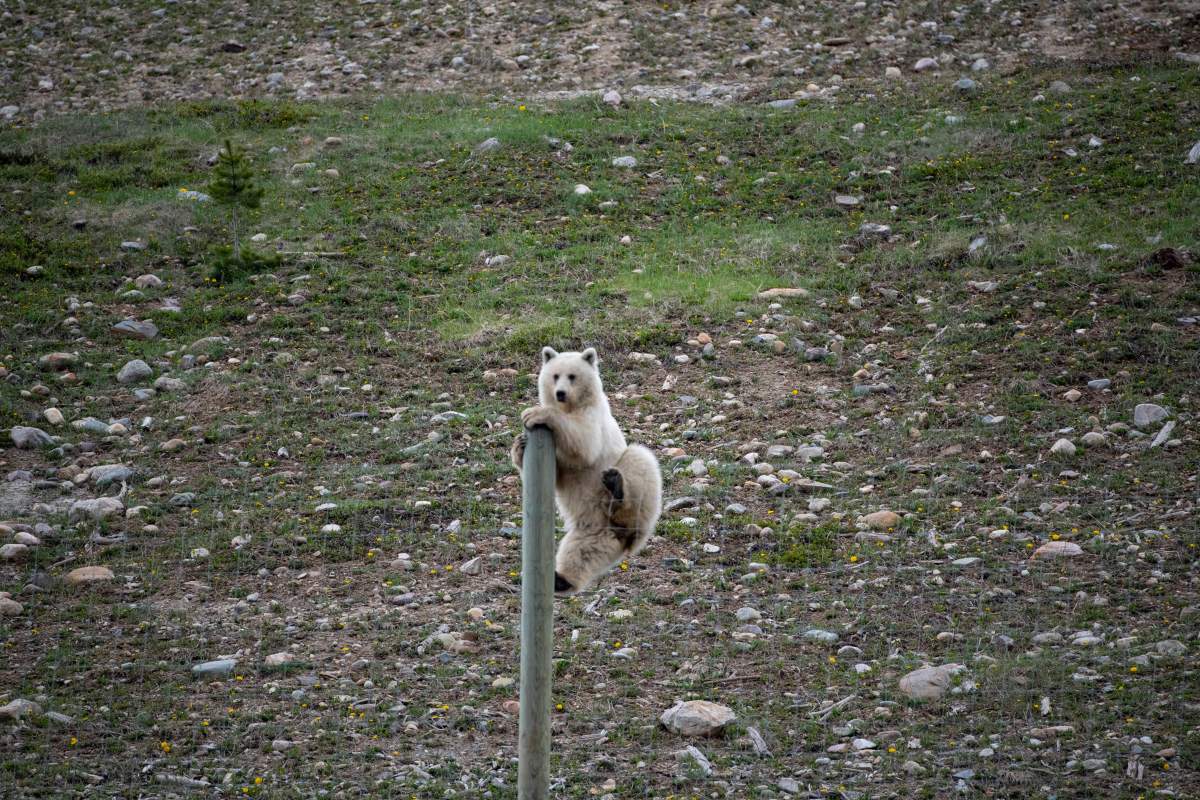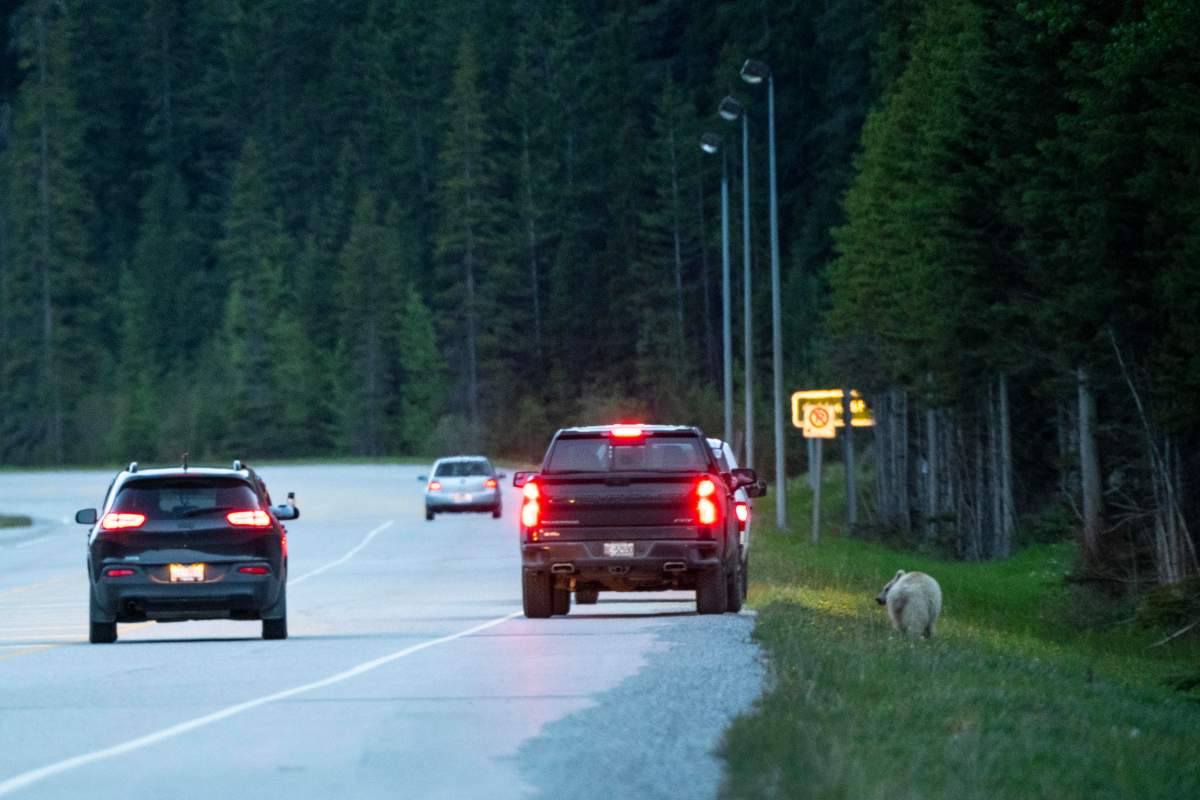A famous white grizzly bear, known locally as Nakoda, has been found dead two days after being injured in a vehicle collision in Yoho National Park in B.C.

Parks Canada said Bear 178 was found deceased on June 8, and is believed to have died from internal injuries sustained in the collision on the Trans-Canada Highway near the Lake O’Hara turnoff.
Nakoda’s two cubs were killed in a separate vehicle incident on the highway earlier that day.
Wildlife management staff witnessed Nakoda run onto the road in front of two vehicles, after being startled by a passing train.
“One of those vehicles was in fact able to swerve and avoid a collision, but the vehicle travelling right behind it, that second vehicle, was unable to react in time and that vehicle struck the bear,” said Saundi Stevens, a Parks Canada wildlife management specialist.
After the incident, Bear 178 climbed over a fence and was moving with a slight limp. Wildlife officials said they were hopeful she would recover from her injuries, but Nakoda was found dead two days later, after her GPS collar sent a mortality signal.
Stevens said a wildlife veterinarian was consulted after the grizzly was initially struck, and it was determined the best chance for Nakoda to recover was to give her time and space. Stevens added that bears often recover from significant injuries, including from vehicle collisions.

Get breaking National news
Parks Canada had been monitoring the white grizzly bear since 2022, when she was fitted with a GPS collar.
Officials said wildlife staff spent significant time with her, often from dawn until dusk.
“The team has developed a strong fondness and connection with GBF178 (Nakoda) and her death has been devastating for the team that was so deeply invested in trying to prevent this outcome,” said Parks Canada in a statement.

Parks Canada said staff undertook extensive efforts to try keep the bears away from the roadside but Bear 178 was very skillful in getting past the highway fence.
Bear 178 had been previously relocated three times, and Stevens said there are significant risks in moving a mother bear and cubs to another location.
Nakoda’s two cubs were struck and killed in a different vehicle collision earlier on the same day that Nakoda was hit.
Wildlife management staff found the two cubs dead on the Trans-Canada Highway on June 6 around 5:15 a.m. The mother was also on the road and was hazed back behind a nearby wildlife fence.
Stevens said Nakoda was seen along the highway several times between the two vehicle incidents.
“She never displayed any signs of distress. She wasn’t running back and forth across the highway. She was observed each and every time foraging for dandelions along the roadside, in the ditch, just a behaviour that was really typically for her.”
Parks Canada said Bear 178 was “very driven” to spend time along the highway, and she had experienced a high level of human interaction, making her “overly comfortable” along the road as she searched for food.
“Bears that become habituated to people often have negative outcomes,” Parks Canada said.
“While Parks Canada is working hard to make roads safer for wildlife, we must once again emphasize to visitors of the importance of not stopping to view wildlife, driving cautiously and obeying speed limits.”
Stevens said that bears and other wildlife are very active beside roads during spring, due to an abundance of food, such as grass and dandelions.
“Instead of constantly pushing the animals off of some critical habitat at a really important time of the year for them, where there isn’t much else for them to feed elsewhere, we just really have to ask the public to act responsibly,” she added.
“Having one grizzly die is significant, especially to lose a family group like this. There aren’t many bears in the park so it does have a repercussion to the population.”




Comments
Want to discuss? Please read our Commenting Policy first.